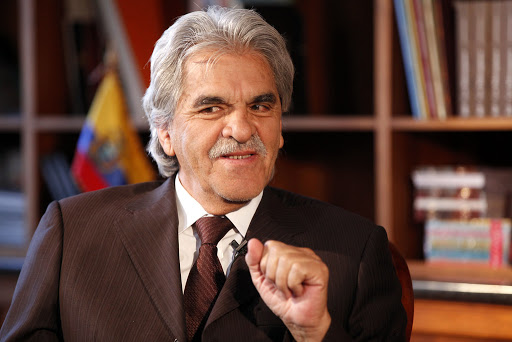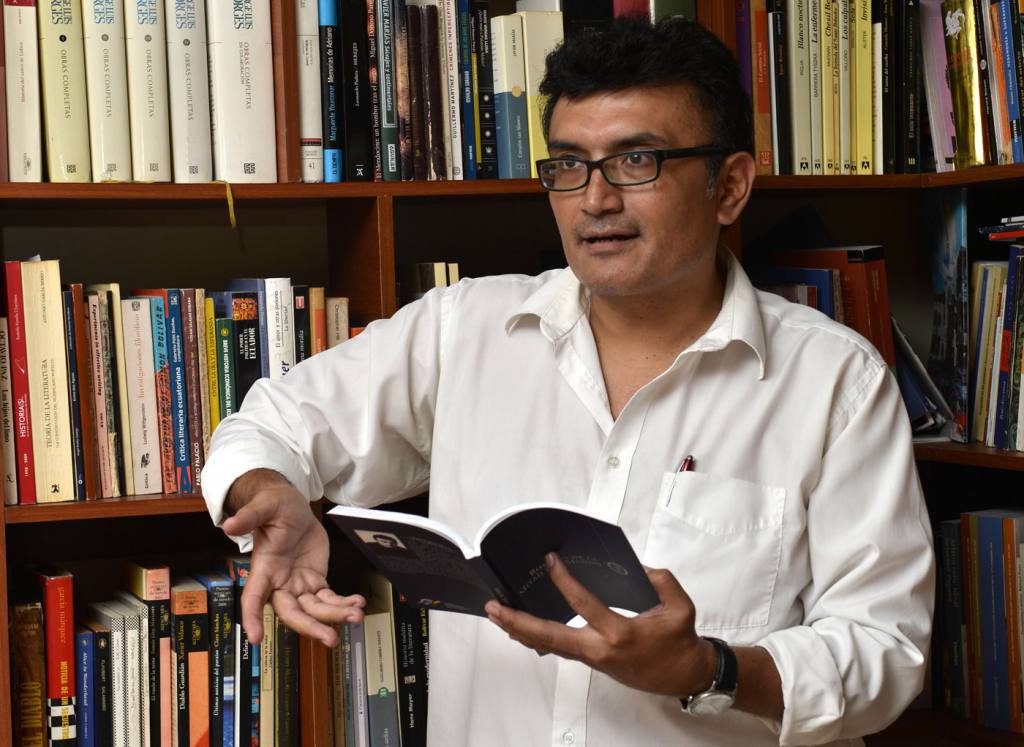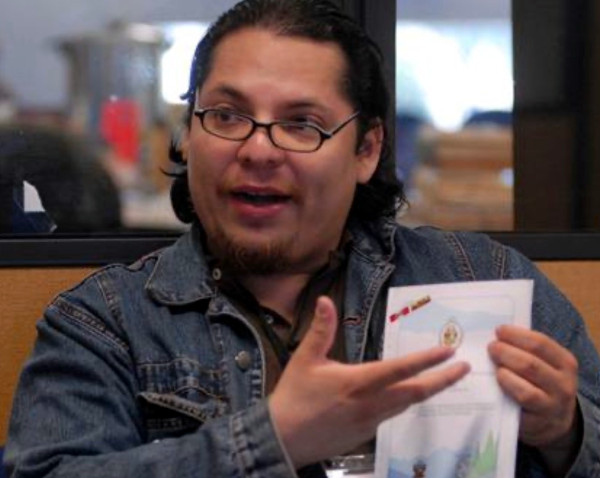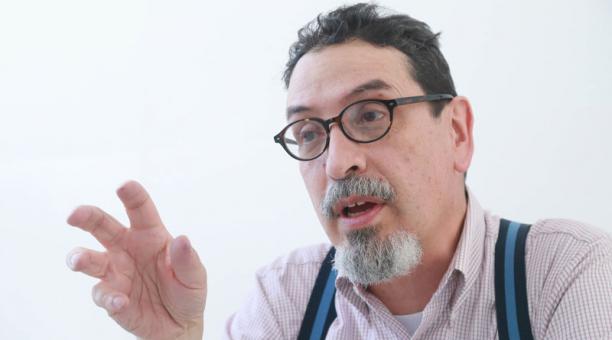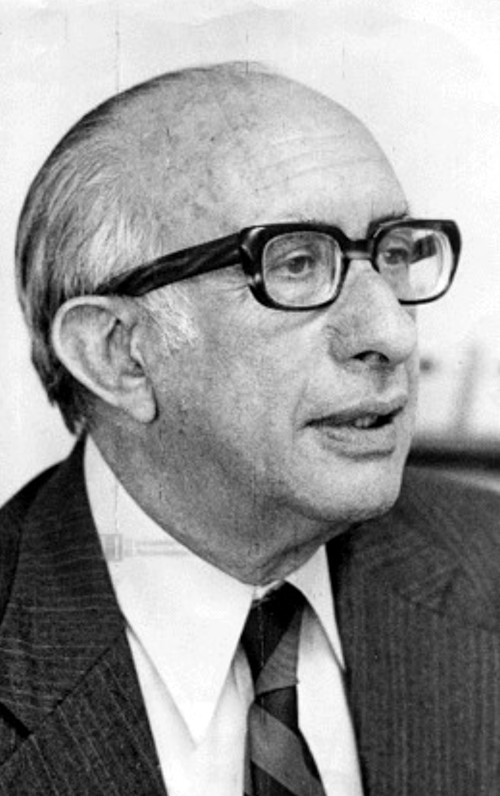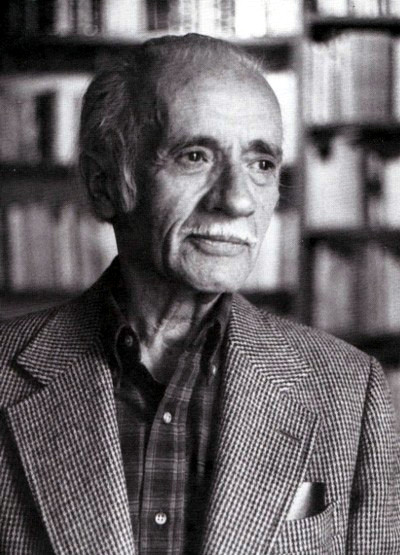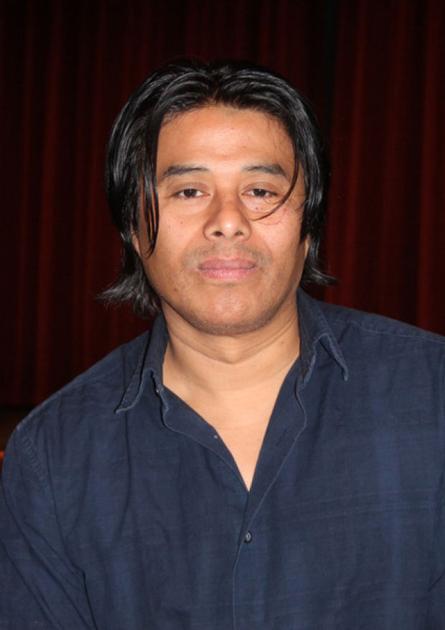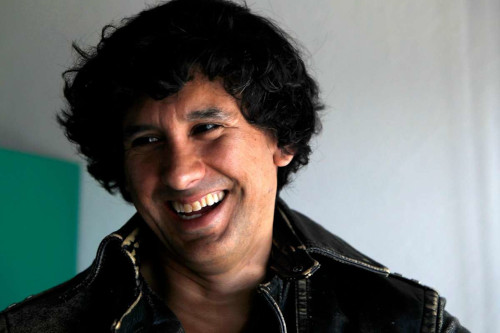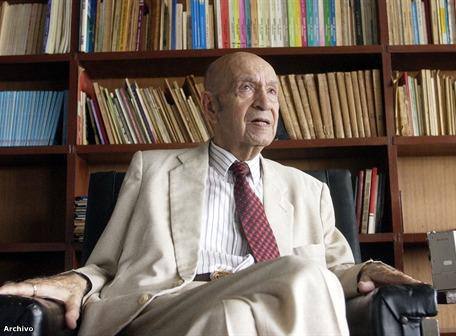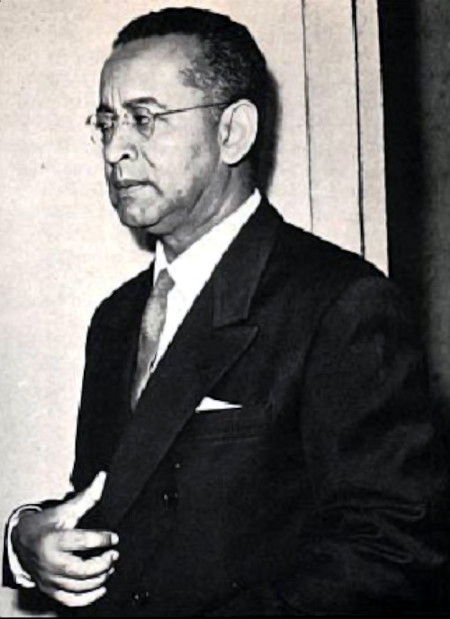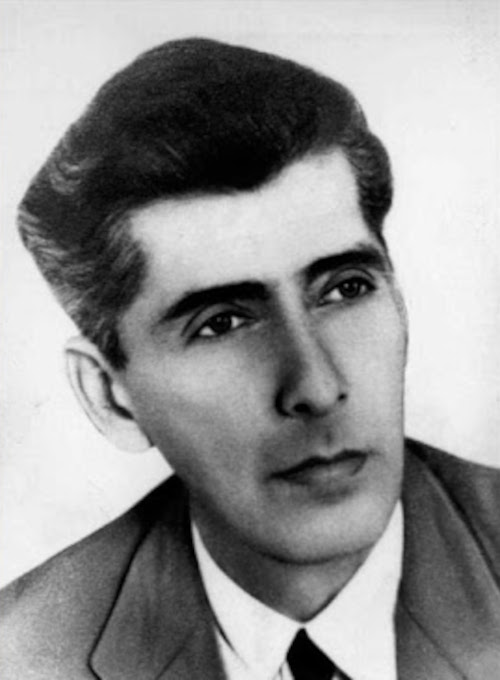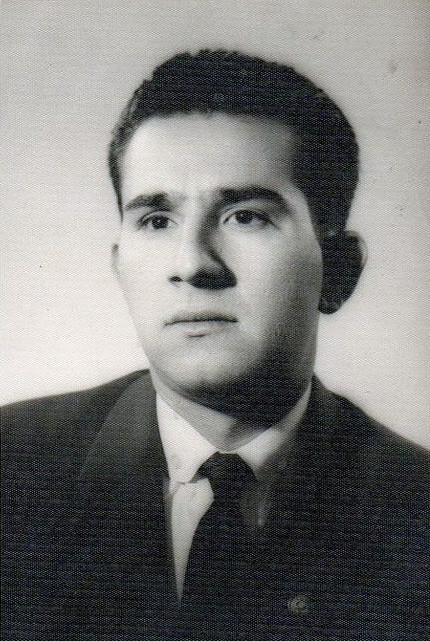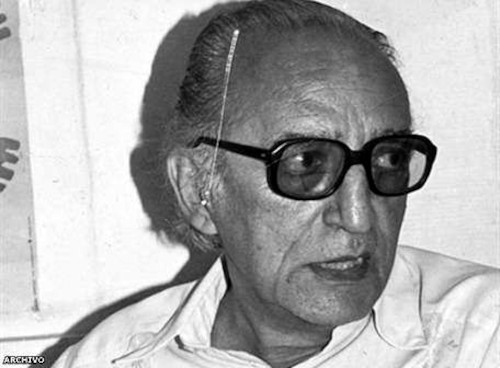Raúl Pérez Torres (Quito, May 11, 1941) is an Ecuadorian writer and cultural promoter. His short story collection En la noche y en la niebla won the Casa de las Américas Prize (Havana, Cuba) in 1980, one of Latin America’s oldest and most prestigious literary awards. In 1995 Pérez’ short story Sólo cenizas hallarás won the Juan Rulfo Prize (France) and the Julio Cortazar Prize. From 2000-2019, Pérez served as the president of the Ecuadorian House of Culture in Quito, and from 2017-2019 served as Ecuador’s Minister of Culture.
Continue reading “Raúl Pérez Torres”Category: Ecuadorian Novelists
Ecuadorian novelists, including stories, translations, bibliographies, biographies, interviews, articles, and much more. Novelists from Ecuador in one place.
Kristel Ralston
Kristel Ralston (Guayaquil, 1984) is a bestselling writer of more than 25 contemporary romance books. Her novel “Lazos de cristal” was one of the five manuscripts on the shortlist for the Second Literary Contest of Indie Authors (2015), sponsored by Amazon, Diario El Mundo, Audible and Esfera de Libros. This contest received more than 1200 manuscripts from different literary genres of Spanish speakers from 37 countries. Kristel was the only Latin-American among the five finalists of the contest. Ralston was also on the shortlist for the romantic novel contest Leer y Leer 2013, organized by Vestales publishing house from Argentina, and she is co-administrator of the literary blog Escribe Romántica. Ralston has published several novels. A prestigious Ecuadorian magazine nominated her as one of the Women of the Year 2015 in the Art category for her literary work.
Continue reading “Kristel Ralston”Édison Gabriel Paucar
Edison Gabriel Paucar Tufiño (Quito, July 29, 1988) is an Ecuadorian novelist, short story writer and journalist. In 2012, his book of short stories Malas compañías y otros caballos de Troya won the Joaquín Gallegos Lara Prize. Paucar’s first novel Mientras llega la lluvia (2017) was a finalist of the North Texas Book Festival Award and received honorable mention at the Darío Guevara Mayorga Prize. Since 2019 he has worked as a journalist at La Hora newspaper.
Continue reading “Édison Gabriel Paucar”Luís Carlos Mussó
Luís Carlos Mussó (Guayaquil, March 17, 1970) is an Ecuadorian poet and novelist. His first novel Oscurana (2012) won the Felicísimo Rojas Literary Prize and the Joaquín Gallegos Lara Prize. His latest novel Teoría del manglar (2018) is a work that follows the structure of the periodic table of elements and deals with the death of his father. Among his 8 poetry books, Tiniebla de esplendor (2006) and Mea Vulgatea (2014) have won the prestigious Jorge Carrera Andrade Award.
Continue reading “Luís Carlos Mussó”Miguel Antonio Chávez
Miguel Antonio Chávez Balladares (Guayaquil, June 7, 1979) is an Ecuadorian novelist and short story writer. His first short story book was Círculo vicioso para principiantes (2005). It was followed by the novel La maniobra de Heimlich (2010), the theater piece La kriptonita del Sinaí y otras piezas breves (2013), and the novel Conejo ciego en Surinam (2013). In 2007 he was a finalist for Radio France Internationale’s Juan Rulfo Prize with the story La puta madre patria. In 2011 he was named “one of the 25 best kept secrets in Latin American literature” by the Guadalajara International Book Fair.
Continue reading “Miguel Antonio Chávez”Santiago Páez
Santiago Páez Gallegos (Quito, 1958) is an Ecuadorian writer known for his novels, short stories, and science fiction works. In his youth, he traveled through the jungles of the Ecuadorian coastal region, lived in the mangroves of Esmeraldas province, and explored the highlands of the central inter-Andean region. At the age of 19, he wrote his first novel but was dissatisfied with it, leading him to stop writing for about 11 or 12 years. During his time in Madrid studying and caring for his newborn son, Páez found solace in writing science fiction stories during his sleepless nights. This experience reignited his passion for writing, prompting him to focus on fiction and pursue an academic career. After obtaining his doctorate in Madrid, he returned to Quito in 1990. Páez is currently a professor at the Pontifical Catholic University of Ecuador. Among his notable works are novels like “La reina mora” (1997), “Pirata Viejo” (2008), and “Olvido” (2010), as well as short story collections such as “Profundo en la galaxia” (1994) and “Ecuatox” (2013). Páez has received recognition for his writing, including the Joaquín Gallegos Lara Award for his short story collection “Profundo en la Galaxia” (1994) and the Darío Guevara Mayorga Award for his book “El secreto de la ocarina” (2009) and the crime novel “Retratos De Dios” (2016).
Continue reading “Santiago Páez”Alejandro Carrión Aguirre
Alejandro Carrión Aguirre (Loja, March 11, 1915 – Quito, January 4, 1992) was an Ecuadorian poet, novelist and journalist. He wrote numerous poetry books, short story books, and the novel La espina (1959). As a journalist he published many articles under the pseudonym “Juan Sin Cielo.” He was the nephew of the writer Benjamín Carrión and the naturalist Clodoveo Carrión. He was a recipient of the Maria Moors Cabot Prize (1961) from the Columbia University Graduate School of Journalism. He also was awarded the Eugenio Espejo Award (1981), Ecuador’s highest literary honor.
Continue reading “Alejandro Carrión Aguirre”Alfredo Pareja Diezcanseco
Alfredo Pareja Diezcanseco was an Ecuadorian novelist, essayist, journalist, historian and statesman. He was born in Guayaquil on October 12, 1908 and died in Quito on May 1, 1993. He was part of a literary group called the “Group of Guayaquil,” whose members utilized realism in their stories. The other members of the group were José de la Cuadra, Joaquin Gallegos Lara, Demetrio Aguilera Malta and Enrique Gil Gilbert. Among the many government posts he held throughout his lifetime, he was elected to the Constituent Assembly in 1944 and was made Minister of Foreign Affairs in 1979. In 1979 he was awarded the Eugenio Espejo Award, the most important literary prize in Ecuador.
Continue reading “Alfredo Pareja Diezcanseco”Ernesto Quiñonez
Ernesto Quiñonez is an American novelist born in Ecuador in 1969. He was raised in Spanish Harlem, New York City, by a communist father from Ecuador and a Jehovah’s Witness mother from Puerto Rico. He is a product of public education from kindergarten to his Masters at the City College of New York where he studied under the American novelist Walter Mosley. Quiñonez’s debut novel, Bodega Dreams, was published in 2000, which the New York Times declared “a New Immigrant Classic”. In an interview with Publisher’s Weekly, Quiñonez said “My goal, in all three of my books, including Chango’s Fire, is to bring magical realism to the barrios, make it more urban.” His work has received the Barnes & Noble Discover Great New Writers designation, the Borders Bookstore Original New Voice selection, and was declared a “Best Book” by the New York Times and the Los Angeles Times. He is currently an Associate Professor at Cornell University where he teaches Narrative Writing and Honors Essay Tutorial courses.
Continue reading “Ernesto Quiñonez”Mauro Javier Cárdenas
Mauro Javier Cárdenas is a critically-acclaimed Ecuadorian novelist. He was born and raised in Guayaquil and studied economics at Stanford University. The New York Times called Cárdenas’ debut novel, The Revolutionaries Try Again, “an original, insubordinate novel.” In 2017, the Hay Festival included Cárdenas in Bogotá39, a selection of the best young Latin American novelists working today. Cárdenas has lived in the U.S. for over a decade. Writing about Cárdenas’ latest novel, Aphasia (2020), literary critic Carlos Fonseca wrote: “Mauro Javier Cárdenas has knocked down the novel as we know it, and built a cathedral out of the debris. Aphasia is monumental, funny, potent, and fresh. It marks a new beginning.”
Continue reading “Mauro Javier Cárdenas”Ángel Felicísimo Rojas
Ángel Felicísimo Rojas (Loja, December 20, 1909 – Guayaquil, July 20, 2003) was an Ecuadorian novelist and short story writer. His best known novel is El éxodo de Yangana (1949), which is one of Ecuador’s most important books. In 1948 Rojas published an influential book entitled The Ecuadorian Novel, which set the tone for literary criticism in the country for future decades. Rojas founded the Socialist Party of Loja in 1927. He was a passionate supporter of socialism, which led to his arrest and imprisonment by the Ecuadorian government in 1941. In 1997 Rojas was awarded the Eugenio Espejo Award in Literature.
Continue reading “Ángel Felicísimo Rojas”Adalberto Ortiz
Adalberto Ortiz Quiñones (Esmeraldas, February 9, 1914 – Guayaquil, February 1, 2003) was an Afro-Ecuadorian novelist, short story writer, poet, professor and diplomat. Among his most important books are: Juyungo (1942, novel; English translation by Susan Hill and Jonathan Tittler, 1983); Earth, Sound and Drum (1953, poetry); Entundada (1971, short story). His most defining feature as a writer was the incorporation of the elements of afro-Ecuadorian culture, enriching his literary vocabulary with its jargon, its elasticity and its rhythm. In 1995 Ortiz was awarded the Eugenio Espejo Prize, Ecuador’s most important literary award.
Continue reading “Adalberto Ortiz”Horacio Hidrovo Velásquez
Horacio Hidrovo Velásquez (Santa Ana, May 20, 1902 – Portoviejo, April 19, 1962) was an Ecuadorian poet, novelist, and short story writer. His most celebrated work, “Un Hombre y un Río” (1957), encapsulates his profound connection to the Ecuadorian coastal life, blending vivid narrative with social commentary. Velásquez played a significant role in the cultural sphere, serving as the President of the House of Ecuadorian Culture in Manabí in 1957, where he was instrumental in promoting the arts and literature.
Continue reading “Horacio Hidrovo Velásquez”Luis Félix López
Luis Ramón Félix López (Calceta, August 25, 1932 – Guayaquil, December 17, 2008) was an Ecuadorian doctor and politician, as well as an award-winning novelist, short story writer and poet. He held many senior government posts during his lifetime and served two terms as president of the Guayas branch of the House of Ecuadorian Culture. His 1973 novel “Los designios,” was finalist for that year’s International Novel Award (Mexico), and his 1996 novel “La noche de rebaño,” won the Joaquín Gallegos Lara Prize. He also published several short story books and a collection of poetry.
Continue reading “Luis Félix López”Hugo Salazar Tamariz
Hugo Salazar Tamariz (Cuenca, September 2, 1923 – Guayaquil, January 31, 1999) was a poet, novelist, playwright and actor. After traveling extensively throughout America, Europe, Asia and Africa, he moved to Guayaquil in 1940 where he lived most of his life and taught literature and drama at the university. He wrote several novels and books of short stories. In 1968 he published 3 plays in one volume entitled “Teatro,” which included “La falsa muerte de un ciclista,” “Toque de queda,” and “Por un plato de arroz.” In 2008, a complete collection of his poems was published posthumously under the eponymous title “Hugo Salazar Tamariz: poesía completa.“
Continue reading “Hugo Salazar Tamariz”
